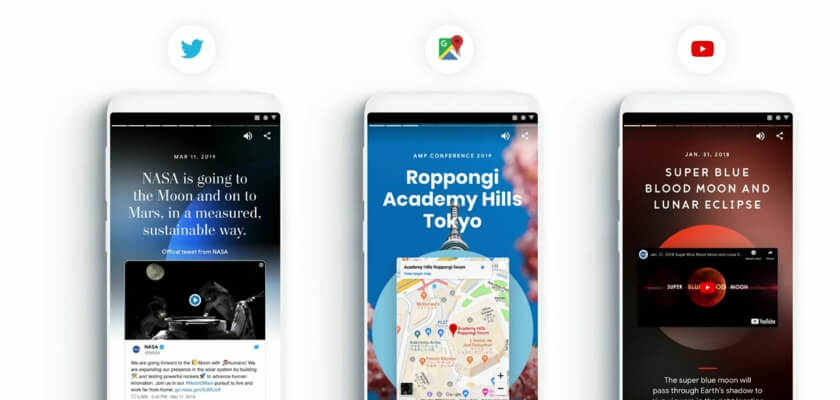The criticism that Google uses the power and reach of its search engine to promote its own services and products over what would otherwise be organically ranked as top results has been persistent for years.
This manipulation of search results – making sure that Google’s products show up at the top of the page – has in the past drawn the ire of competitors who believe their business is harmed in this way, attracting also the interest of antitrust regulators, notably in the EU.
In this context, the world’s by far most dominant search and advertising company outside of China’s and Russia’s markets might be playing with fire by promoting those websites that have signed on to its Accelerated Mobile Pages (AMP) – by giving their pages a very favorable placement in search results.
Specifically, as announced at Google’s I/O developer conference, these results will be placed underneath the search bar and will give advantage to publishers using AMP Stories. To start with, the new policy will cover select categories like travel, to be followed by entertainment, gaming, fashion, and other topics.
Furthermore, Google will continue to integrate its own services and products, such as Maps and YouTube content into AMP Stories. In another nod to trusty and influential AMP partners, Twitter posts will also be incorporated into the service.
In and of itself, AMP – which on the technical side improves page load times on mobile devices – is a controversial and contested project when it comes to its big picture purpose. It was designed to compete with Facebook’s Instant Articles and Apple’s News – with all three projects looking for ways of exerting power over the web and the way publishers make their money online, by locking them into a system these giants develop and control.
But even though it’s criticized, the AMP deal has been too good to refuse by nearly a million domains and billions of their pages.
One way for Google to attract and keep partners in this project is to reward them – and being given preferential placement in search results is certainly a sweet treat.
If you're tired of censorship and dystopian threats against civil liberties, subscribe to Reclaim The Net.









